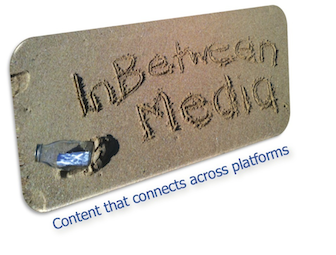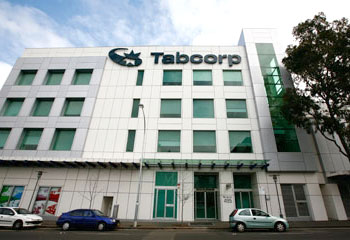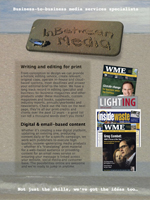Attracting both attention and recognition are a number of projects taking a more sustainable approach to waste management, recycling and upcycling in the Ultimo-Pyrmont (UP) precinct of Sydney.
The Green Globe Awards, run by the NSW Office of Environment & Heritage (OEH), recently shortlisted a number of projects, including some from participants in the Smart Locale project.
Facilitated by the Total Environment Centre, Smart Locale’s mission is to accelerate the transformation of the UP local economy into an internationally recognised showplace for smart, safe, sustainable living by 2020.
One of the finalists in the Waste & Recycling category of the Green Globe Awards was a joint entry from Edge Environment and the Better Buildings Partnership (BBP), for waste diversion from office strip-out.
Breaking new ground, the initiative of Edge Environment under the NSW’s Environmental Protection Authority’s (EPA) Waste Less Recycle More initiative, managed to make a successful business case for the diversion of office defit materials from landfill.
Known as the Sydney Industrial Ecology Network, the initiative is now in the process of evolution and an announcement by the EPA of its future is expected by the end of this year.
One of the major partners with the SIEN was the BBP, a collaboration between Sydney’s major commercial landlords. In one pilot case, a waste diversion of 61 per cent was achieved in a large office strip-out at Governor Macquarie Tower. More than eight tonnes of furniture was removed for re-use by Good360 (an organisation which provides charities with access to vital corporate product donations) and over 530 tonnes of material recycled. Following this success, an industry toolkit was developed. Together with the BBP’s work on development of model leases and contracts to optimise resource recovery from office strip-outs, new industry precedents and benchmarks are being set in resource recovery and re-use.
Edge Environment also facilitated materials diversion from the strip-out of the Tabcorp building in Harris Street, Ultimo, earlier this year.
Again, working with Good360 and other agencies, Blake Lindley from Edge Environment confirmed they were able to “re-home” a large amount of furniture within a short timeframe.
He said while they considered inviting the general public to re-purpose material from the Tabcorp building, it wasn’t possible in this instance due to accessibility and insurance issues.
Francois McHardy from Good360 said the organisation’s focus is “keeping material out of landfill and getting material to parties who need it”.
Describing the Tabcorp building as a “rabbit warren” he said more than 53 tonnes of material was re-purposed which could roughly represent about one-third of the furniture and other items that were spread across the four floors of the building.
“The landlord had engaged a project management company for the defit,” said McHardy. “They were very helpful and it’s really important when you do these things to have people buy in… to get rid of as much material beforehand which it’s easy to build a business case for”.
UP part of city’s zero waste plan
Winner of the Green Globe Award in the Waste & Recycling category, and participant in Smart Locale is the City of Sydney (CoS). It’s Zero Waste Program, last year, diverted more than two-thirds of domestic waste from landfill.
Of note in the UP precinct, CoS has instituted an onsite e-waste collection service for residents in large apartment buildings to trial new ways of making e-waste recycling more convenient.
Australians generate more than 140,000 tonnes of electronic waste each year and most of this ends up in landfill. This year alone, the City has helped more than 2,000 households recycle 60 tonnes of electronic and unwanted household waste.
E-waste items sometimes contain precious metals such as copper and platinum that should be re-used. Computer screens and TVs contain toxic chemicals such as lead, mercury and arsenic, which can leach out once in landfill.
Hal Dobbins, Senior Program Coordinator – Zero Waste at City of Sydney, said there were a number of high performers in the e-waste trial which focused on three buildings in the UP precinct.
“Regatta Wharf recycled the most in terms of the number of households and The Bauhaus had a strong executive level support,” said Dobbins.
The Bauhaus’ body corporate purchased an extra car parking space in the basement of the building and turned it into a specialist recycling area including a charity clothing bin and e-waste recycling bins as permanent fixtures.
Dobbins said The Bauhaus was one of several “champion body corporates” that were “really pushing for this trial and used it as a springboard” to create greater recycling opportunities for residents.
The trial, which is ongoing, and commenced in January 2014, was designed to collect e-waste, batteries, light bulbs, mobile phone and accessories. After an initial trial of six apartment buildings, there were a few lessons learned in the process. A preliminary muster event, promoted widely was an effective way to kick start the program and a champion or leader was necessary in each apartment building to help organise and maintain the recycling service.
The champion was provided with a user guide to induct them into the program and provide information on OH&S and other relevant information. The City had set up the program to make it convenient for the building manager or cleaner to book collections once the bins were full.
Whilst Dobbins said a collection service on this scale is not financially sustainable, there are potential gains to be made via a broader city-wide service.
At the same time, the CoS has continued with its popular e-waste “drop-off” events, with the next one taking place at the City’s Bay Street Depot, Ultimo, on 5 December.
CoS is also about to kick off an illegal dumping awareness campaign in the UP precinct.
Echo recycles its way to success
Echo Entertainment Group, which owns and operates The Star casino in Sydney, and entertainment and convention venues in other states, is a participant in Smart Locale. It was also listed as a finalist in the Green Globe Awards for its achievements in waste and recycling over the past five years.
A more recent initiative has been its waste to energy program, through organics recycling across all food and beverage outlets at The Star. All kitchens have a colour coded three to four bin system enabling team members to collect approximately 80 tonnes of food waste per month and mixed recyclables, paper and cardboard that otherwise would have gone to landfill.
The Star has also painted docks adding clear signage and provided training for stewards, chefs, and kitchen and bar team members on the correct way to recycle. The Star also educates all newly appointed team members during induction on waste management procedures and targets.
In addition to The Star’s organics rollout, the business has achieved the following outcomes as part of its five-year strategy to reduce resource consumption and to improve performance:
. an increase in the recycling rate for the whole group of more than 14 per cent
. an improvement in The Star’s recycling rate of all construction, fitout, operational, food, beverage, gaming and office waste from 8 per cent to 42 per cent
. co-mingled recycling in all offices in addition to paper and cardboard
. training of all stewards at The Star in recycling practices
. a switch to biodegradable packaging for casino food and beverage retail outlets, including takeaway cups
. diversion of more than 90 tonnes food waste from landfill per month.
. an increase in tonnage and reporting visibility of glass recycling program – recycling 1,382 tonnes of glass since 2010 to June 2015 equating to the C02 equivalent of 1,244 trees planted.



Comments are closed.